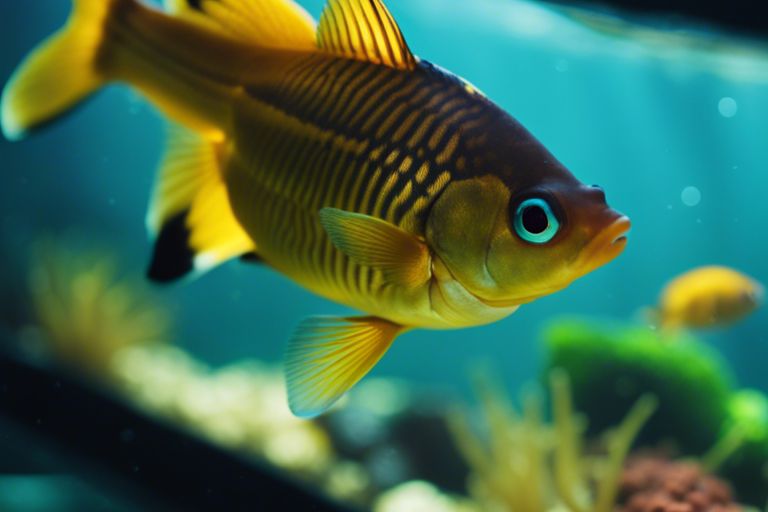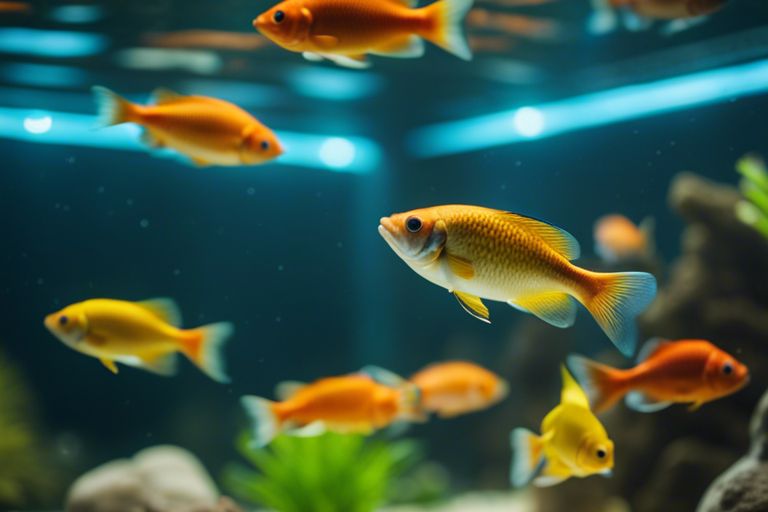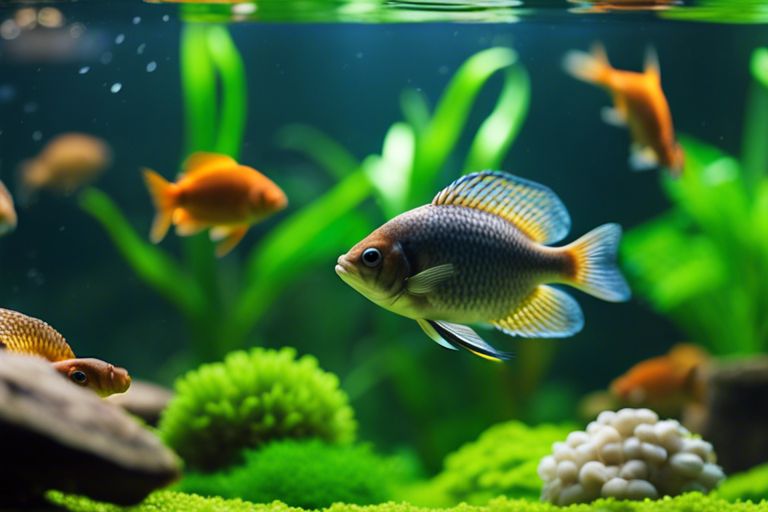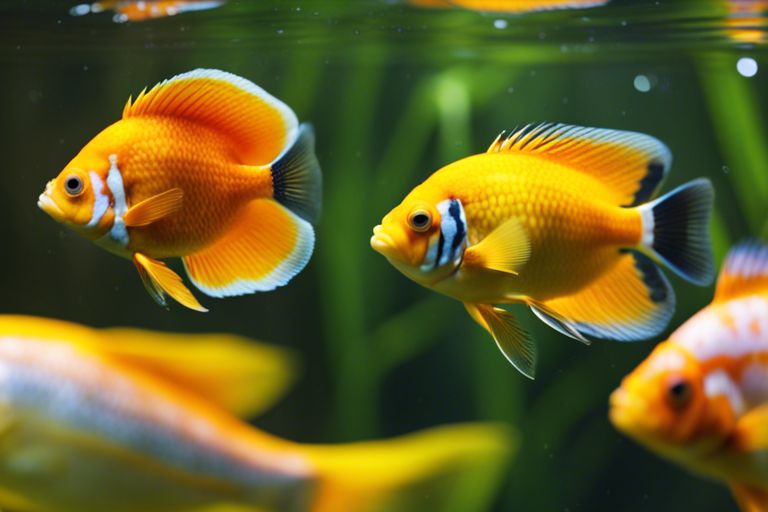You’ve invested time and effort into creating a beautiful underwater world for your freshwater fish, but have you considered their dietary needs for optimal health? Just like any other living creature, proper nutrition is key to ensuring your fish thrive in their environment. In this informative guide, we will explore the importance of feeding your freshwater fish a balanced diet to promote their well-being and longevity. By understanding the nutritional requirements of your aquatic pets, you can take proactive steps to keep them happy and healthy for years to come.

Essential Nutrients for Freshwater Fish
Proteins and Amino Acids
On top of the list of imperative nutrients for freshwater fish are proteins and amino acids. These nutrients are crucial for the growth, development, and overall health of your fish. Proteins provide the necessary building blocks for muscle and tissue development, while amino acids play a vital role in various physiological processes. Make sure to choose high-quality fish food that is rich in proteins and contains a balanced blend of imperative amino acids to meet the dietary needs of your freshwater fish.
Vitamins and Minerals
One of the key components of a well-rounded diet for freshwater fish is a variety of vitamins and minerals. These micronutrients are imperative for maintaining optimal health, immune function, and overall well-being in your fish. Vitamins like A, D, and E, along with minerals such as calcium, phosphorus, and potassium, play vital roles in various biological processes, including bone formation, metabolism, and enzyme function.
Essential vitamins and minerals can be obtained through a balanced diet of high-quality fish food, supplemented with fresh vegetables and fruits. It is important to ensure that your freshwater fish receive all the necessary vitamins and minerals to thrive in their aquatic environment.

Types of Freshwater Fish Foods
Any freshwater fish owner knows the importance of proper nutrition to ensure the optimal health and well-being of their aquatic pets. There are various types of fish foods available in the market, each catering to different dietary needs and preferences. Some popular options include flakes, pellets, freeze-dried foods, live foods, and even homemade options. It is important to vary your fish’s diet to provide a balanced nutrition profile and prevent monotony in their meals.
Commercial Fish Foods
Freshwater fish foods that are commercially available are formulated to meet the specific nutritional requirements of different fish species. These foods are convenient and come in various forms such as flakes, pellets, and granules. It is important to choose high-quality commercial fish foods to ensure that your fish receive all the important nutrients they need to thrive.
Live, Frozen, and Freeze-Dried Options
Freshwater fish can also benefit from live, frozen, and freeze-dried food options. Live foods such as brine shrimp and bloodworms can provide a more natural feeding experience for your fish. Frozen and freeze-dried options offer convenience while still retaining the nutritional value of live foods. These options can be excellent treats or supplements to commercial fish foods.
The key to a healthy and balanced diet for your freshwater fish is a mix of commercial foods and live, frozen, or freeze-dried options. By varying your fish’s diet, you can ensure they receive all the important nutrients needed for optimal health and longevity.
Feeding Practices for Optimal Health
Determining the Right Amount and Frequency
To ensure the optimal health of your freshwater fish, it is crucial to feed them the right amount and frequency. Overfeeding can lead to water quality issues and various health problems for your fish. To determine the appropriate amount, consider the size and species of your fish, as well as their individual dietary needs. It is recommended to feed small amounts multiple times a day, rather than one large feeding, to prevent leftovers from contaminating the water.
Special Considerations for Different Fish Species
As far as feeding freshwater fish, not all species have the same dietary requirements. Some may be herbivores, while others are carnivores or omnivores. It is necessary to research the specific dietary needs of the fish species you are keeping in order to provide them with the proper nutrition. Additionally, certain fish may have preferences for live or frozen foods over dry pellets or flakes.
The key to keeping your freshwater fish healthy and thriving is to tailor their diet to their specific species requirements. For example, herbivorous fish like plecos or silver dollars will need a diet rich in algae or plant-based foods, whereas carnivorous species like cichlids will benefit from high protein diets with live or frozen foods such as brine shrimp or bloodworms.

Common Feeding Mistakes to Avoid
Overfeeding and Underfeeding
Your freshwater fish’s health heavily depends on the amount of food you provide. Overfeeding can lead to water quality issues like ammonia spikes and obesity in fish, while underfeeding can result in malnutrition and stunted growth. It is important to feed your fish the right amount to maintain their health and well-being.
Dietary Variety and Nutrient Imbalance
Underfeeding your fish a variety of foods can lead to nutrient deficiencies and imbalances in their diet. Each type of fish has different nutritional requirements, so it is crucial to offer a balanced diet that includes a variety of foods such as flakes, pellets, live or frozen foods, and vegetables. Not providing a diverse range of food can result in inadequate nutrient intake, affecting your fish’s overall health.
Avoid solely relying on one type of food for your fish. Introduce a variety of options to ensure they receive all important nutrients for optimal health.
Conclusion
Now, you understand the importance of proper nutrition in maintaining the optimal health of your freshwater fish. By choosing high-quality fish food and providing a balanced diet, you can ensure that your fish receive the vital nutrients they need to thrive. Remember to consider the specific dietary needs of your fish species and avoid overfeeding to prevent health issues. With a well-balanced diet, your freshwater fish will not only look vibrant but also live a longer and healthier life.
FAQ
Q: Why is proper nutrition important for freshwater fish?
A: Proper nutrition is necessary for freshwater fish to promote optimal health, growth, and overall well-being.
Q: What should be included in a well-balanced diet for freshwater fish?
A: A well-balanced diet for freshwater fish should include a variety of high-quality flake or pellet food, live or frozen food like bloodworms or brine shrimp, and occasional treats like vegetables or fruits.
Q: How often should I feed my freshwater fish?
A: It is recommended to feed your freshwater fish small amounts 2-3 times a day, only giving them what they can consume in a few minutes to prevent overfeeding and water quality issues.
Q: Can I overfeed my freshwater fish?
A: Yes, overfeeding can lead to obesity, digestive problems, and water quality issues in your freshwater aquarium. It is crucial to feed your fish in moderation and avoid overfeeding.
Q: Should I consider the specific dietary needs of my freshwater fish species?
A: Yes, different fish species have varying nutritional requirements. It is important to research and provide a diet that meets the specific needs of your freshwater fish species for optimal health and vitality.
Q: How can I ensure my freshwater fish are receiving proper nutrition?
A: You can ensure your freshwater fish are receiving proper nutrition by offering a varied diet, observing their feeding behavior, monitoring their overall health and growth, and adjusting their diet as needed.
Q: Are there any signs that indicate my freshwater fish may not be getting adequate nutrition?
A: Yes, signs of inadequate nutrition in freshwater fish may include lethargy, loss of color, fin deterioration, decreased appetite, and stunted growth. If you notice any of these signs, it is necessary to reassess their diet and consult with a professional if necessary.










